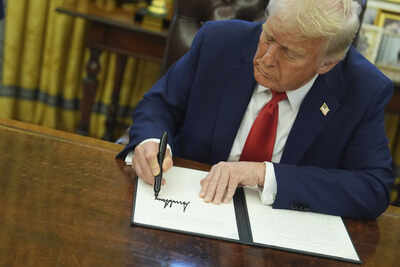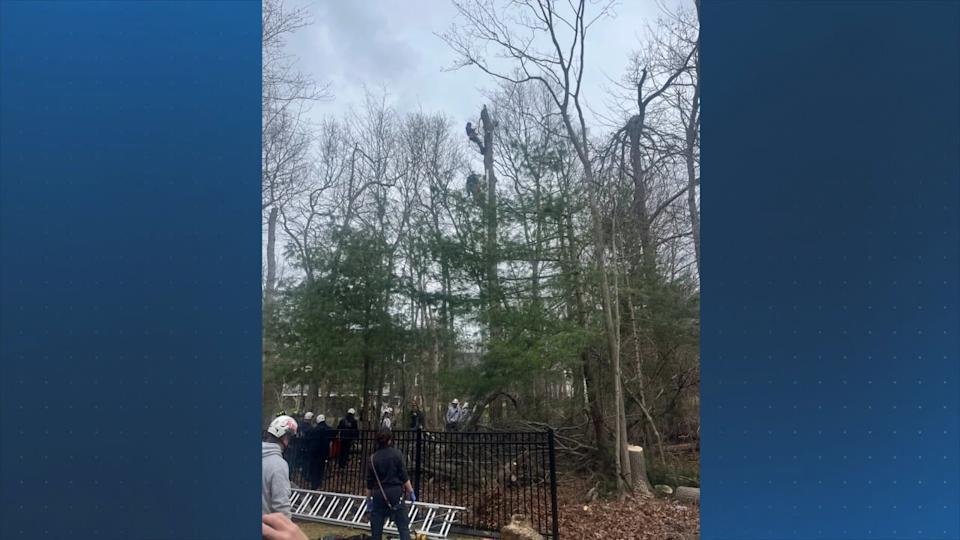
SAN DIEGO: Rosalba Hernandez used to keep her children’s birth certificates close at hand in case an earthquake struck her part of California. But since Donald Trump returned to the White House, it’s more because she’s worried about immigration raids.
News about high-profile arrests and deportations have characterised Trump’s first 100 days back in office, with his administration saying he is making good on campaign promises to clamp down on illegal immigration.
That has left undocumented people like Hernandez on edge.
“You don’t live your normal life anymore,” Hernandez, 46, told AFP in southern California, which she has called home for half her life.
Hernandez, now a mother of five, left Mexico with her eldest daughter in her arms more than two decades ago and arrived in the United States.
She was briefly detained under the first Trump administration in 2019, when immigration agents raided the supermarket where she worked.
The experience frightened her, but Hernandez, who now works in a restaurant, says she’s never been as terrified as she has been in the past three months.
“You go to work but you don’t know what’s going to happen… you don’t know if you’re going to be able to go home or not,” she said.
“With all the focus on deporting people, they don’t care. Even if you don’t have a criminal record, you have the bad luck of passing by when they’re making an arrest or waiting for someone,” she added.
To reduce the risk of encountering agents, Hernandez now limits her outings only to what is strictly necessary — and even then she is extra cautious.
When she goes to work or takes her children to school — four of them are US citizens by birth — she first checks for suspicious cars outside, or consults text chains involving friends, neighbors and non-governmental organizations.
“When we see something irregular, we start notifying these organizations, and everything gets put on Facebook, in messages, on Instagram,” she said.
Citizen Patrol
One of these sources of information is Union del Barrio, a group that patrols the streets of San Diego and Los Angeles before dawn to be on the lookout for potential raids.
“The goal is to see nothing, but if we see something, we inform the community,” said Ron Gochez, a member of the organization.
“We do this every single day in some different area of Los Angeles. And we’re on call 24 hours a day,” he told AFP during a tour of south-central Los Angeles, a working-class area with a strong immigrant presence.
Activists gather at 5:30am to co-ordinate their patrol, looking for the kind of vehicle they believe Immigration and Customs Enforcement (ICE) agents use.
“We’re looking for primarily American SUVs, Ford, Chevy, etc. Sometimes they also use pickup trucks or Dodge Challengers.
“We’re looking for cars with tinted windows…. that could be sometimes double parked.”
These patrols began more than two decades ago in San Diego, but increased in frequency this year with the return of Trump.
“The community is very scared,” said Gochez, whose day job is teaching history in a public school.
“About 10 percent of my students have disappeared. They just don’t go to school anymore.”
Gochez, 43, said he knew of at least one student whose family fled to El Salvador for fear of being caught up in raids.
Community life has also diminished, he says, with church attendance down, and quinceaneras — coming-of-age parties for girls turning 15 — becoming rarer.
At the end of each patrol, Union del Barrio posts images on social media so neighbors know if their area is free of raids.
This information is vital for people like Hernandez, who says she fears daily being separated from her children.
“If I have the opportunity to stay here, it’s to help them get ahead and have a better future,” she said.
“I don’t want them to have to work sometimes up to 16 hours a day.”
Despite the risk, Hernandez said she wasn’t afraid of giving an interview and was not ashamed.
“I’m not saying anything that isn’t true,” she said.
“Like many people, I am working. We’re not doing anything bad for this country.
“We all come to work, and our work contributes to the economy of this country.”




















